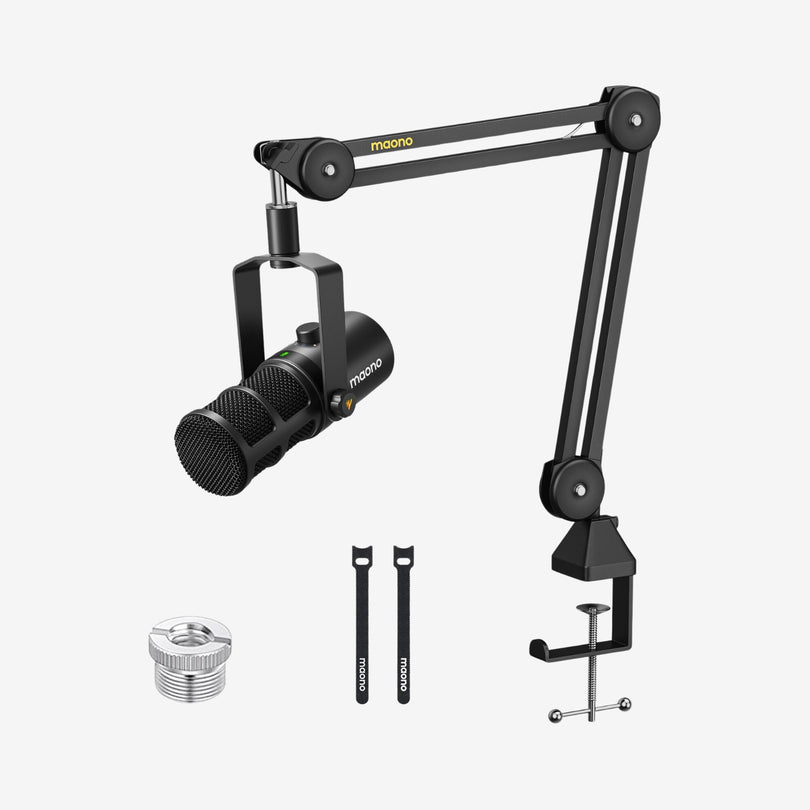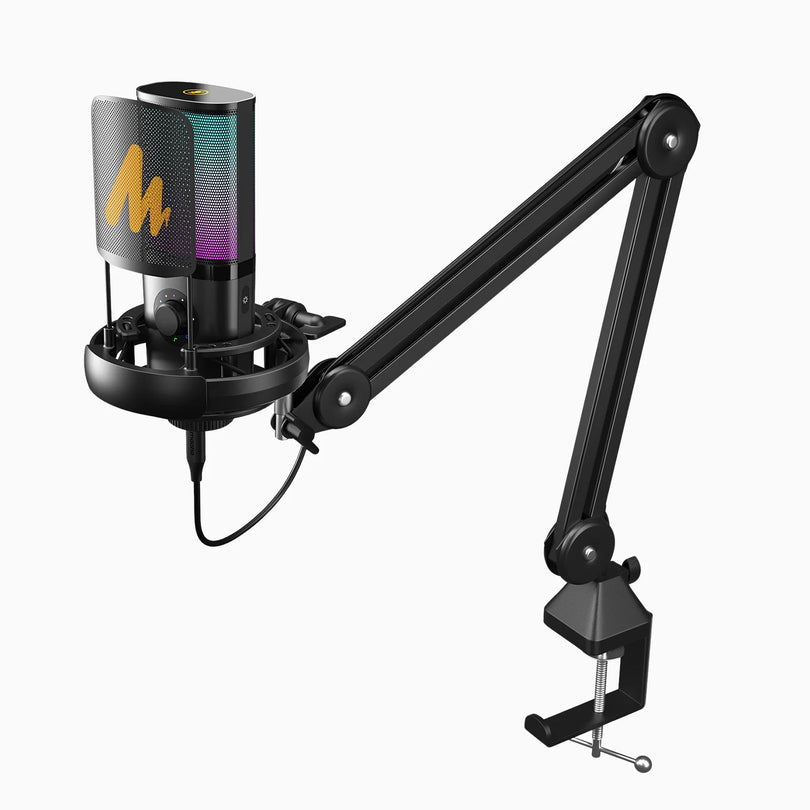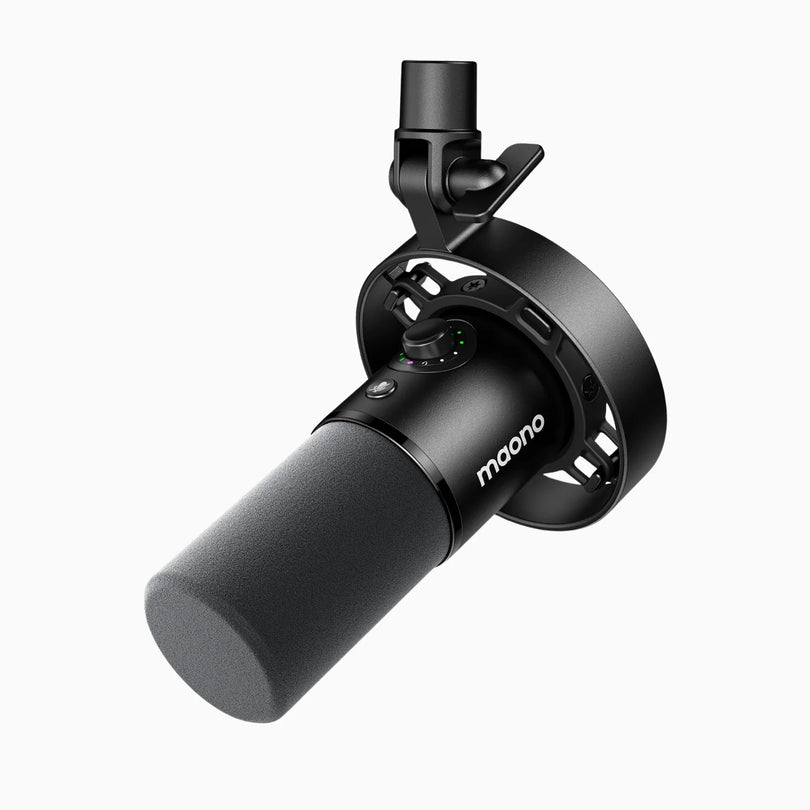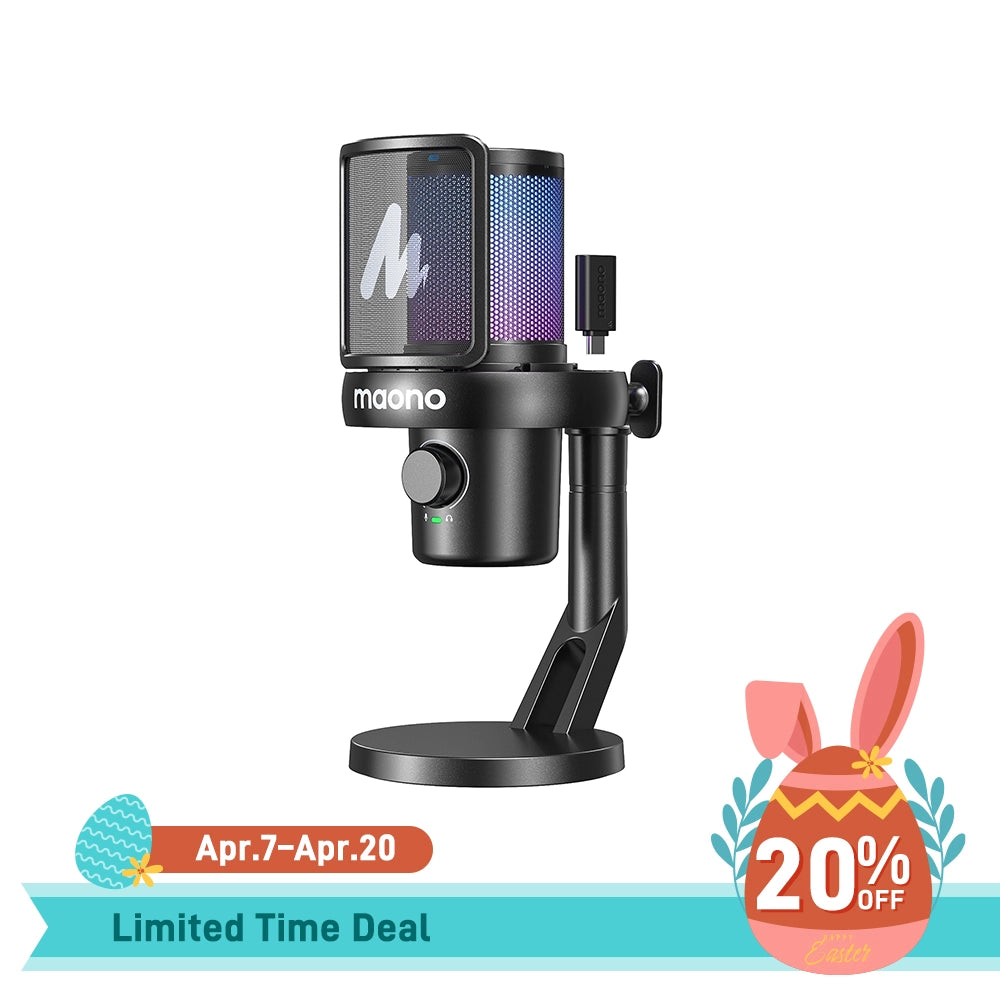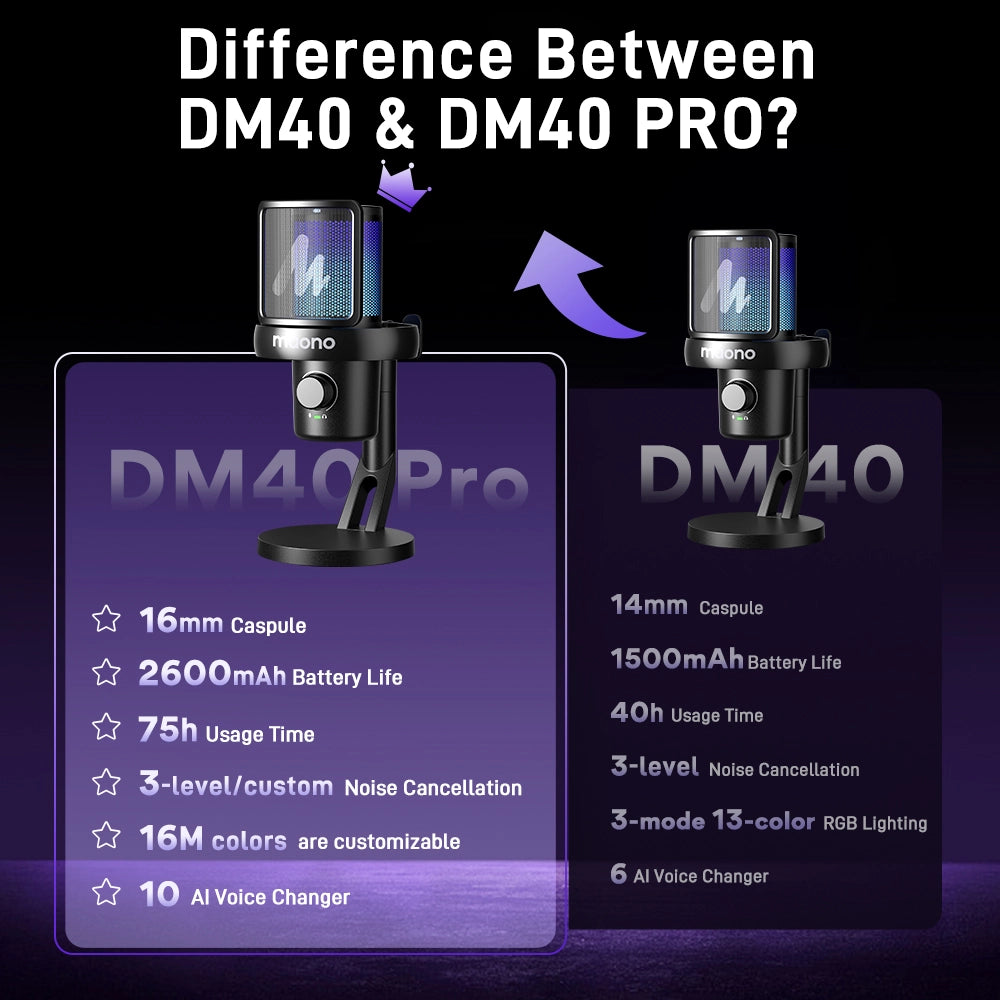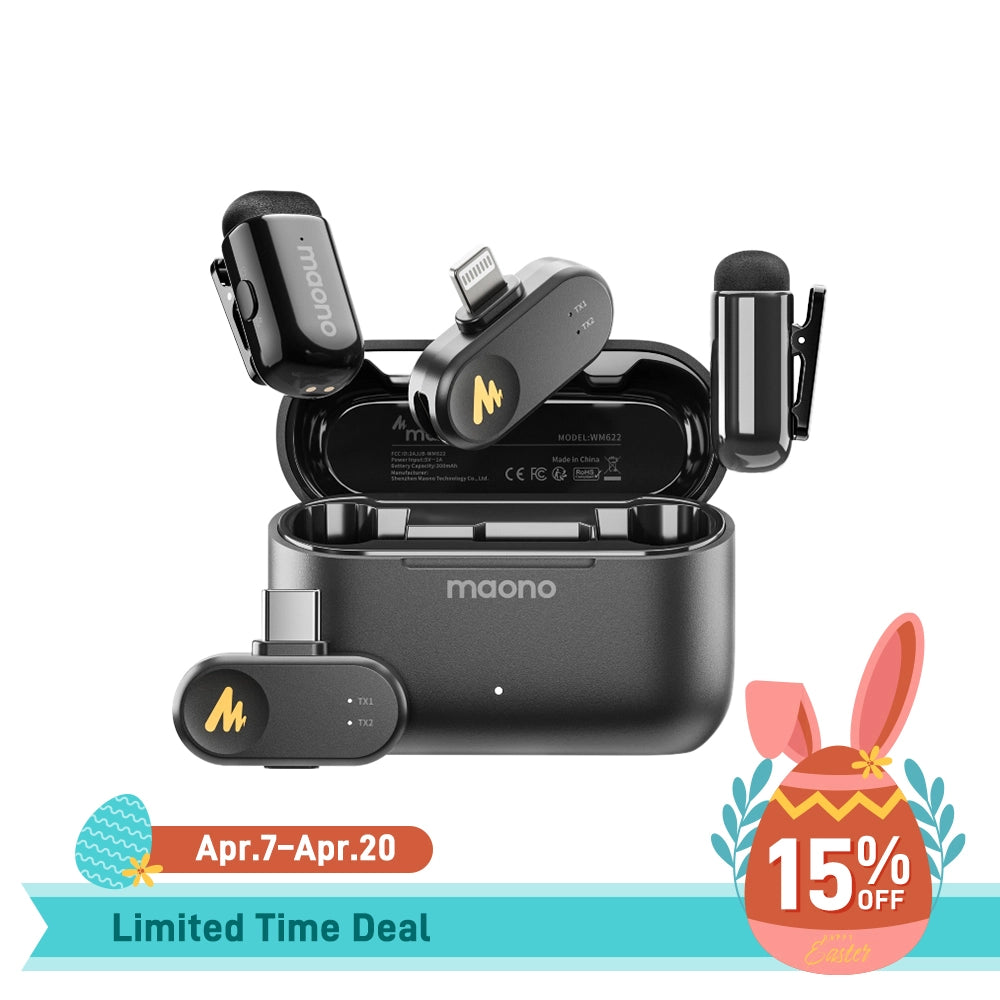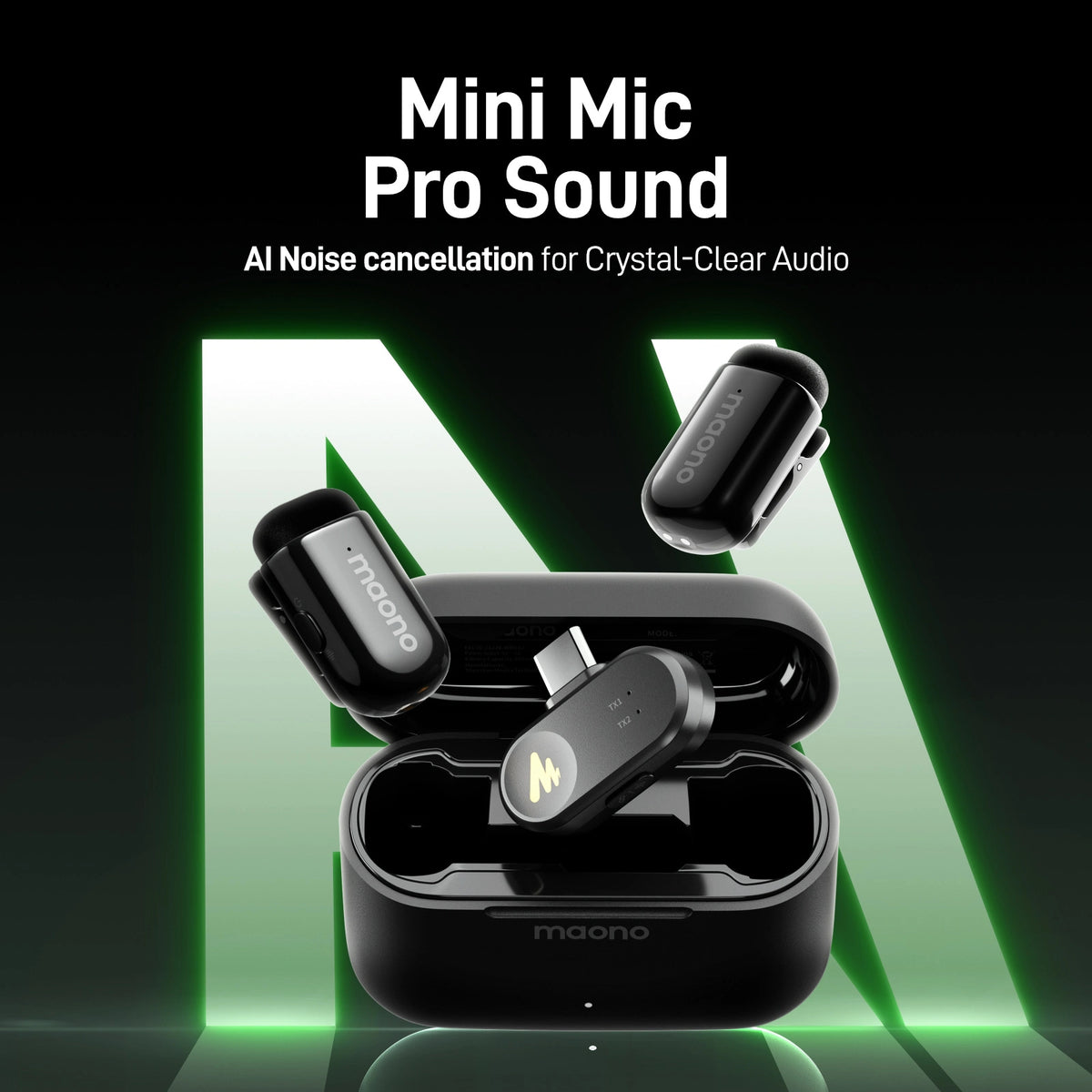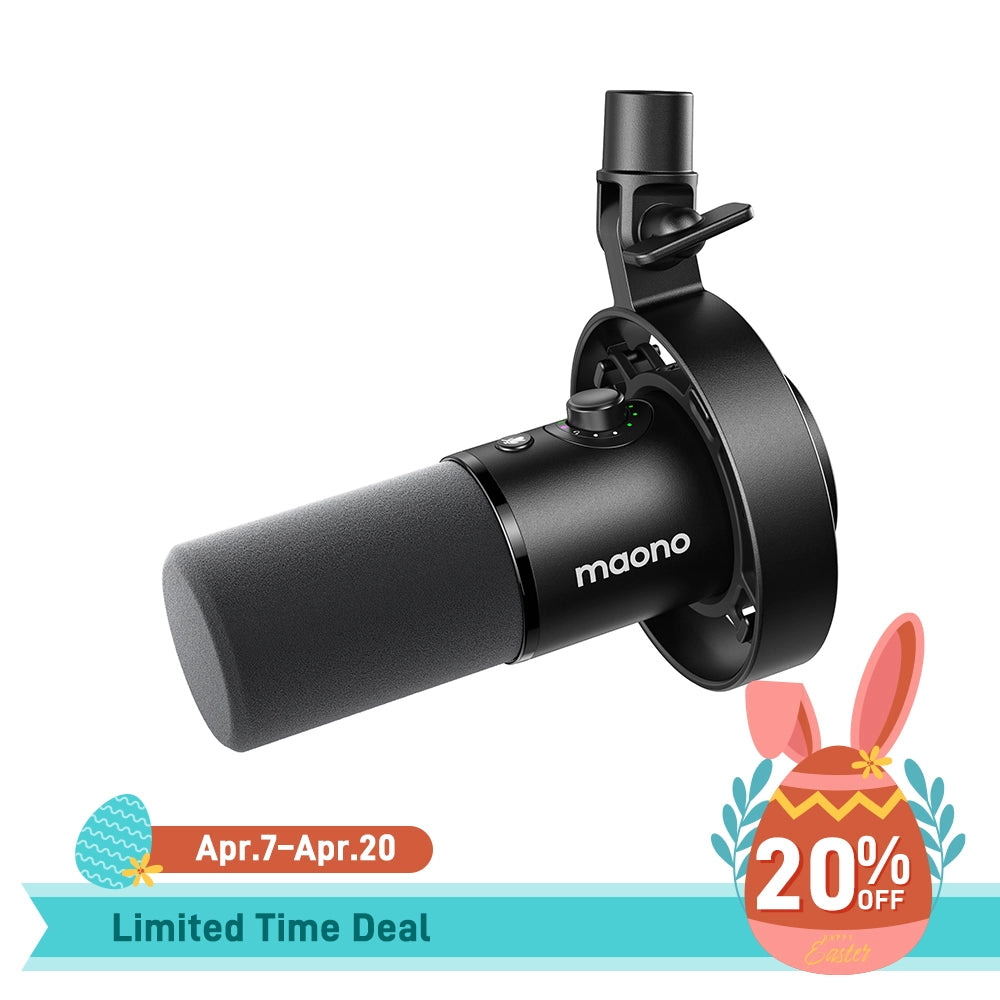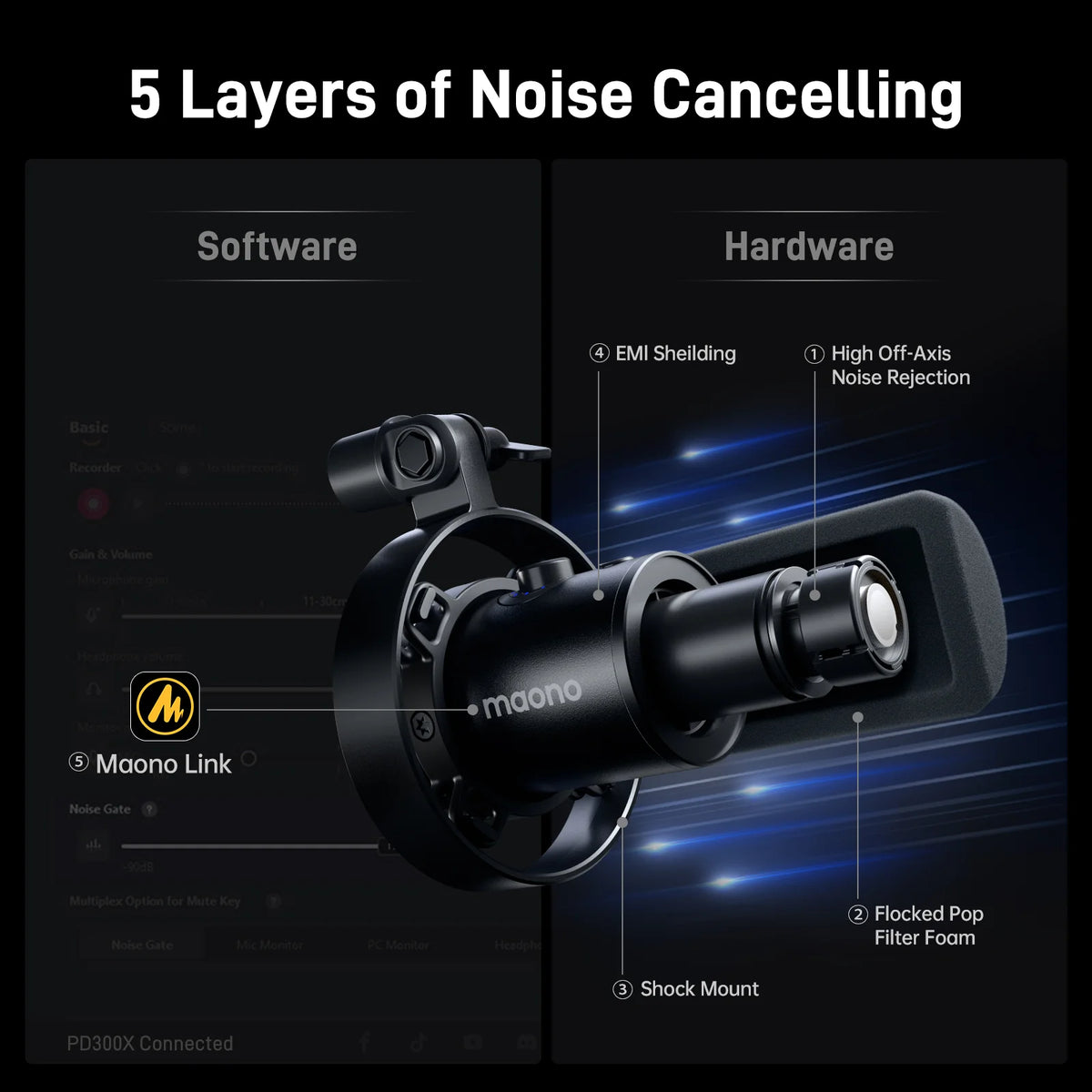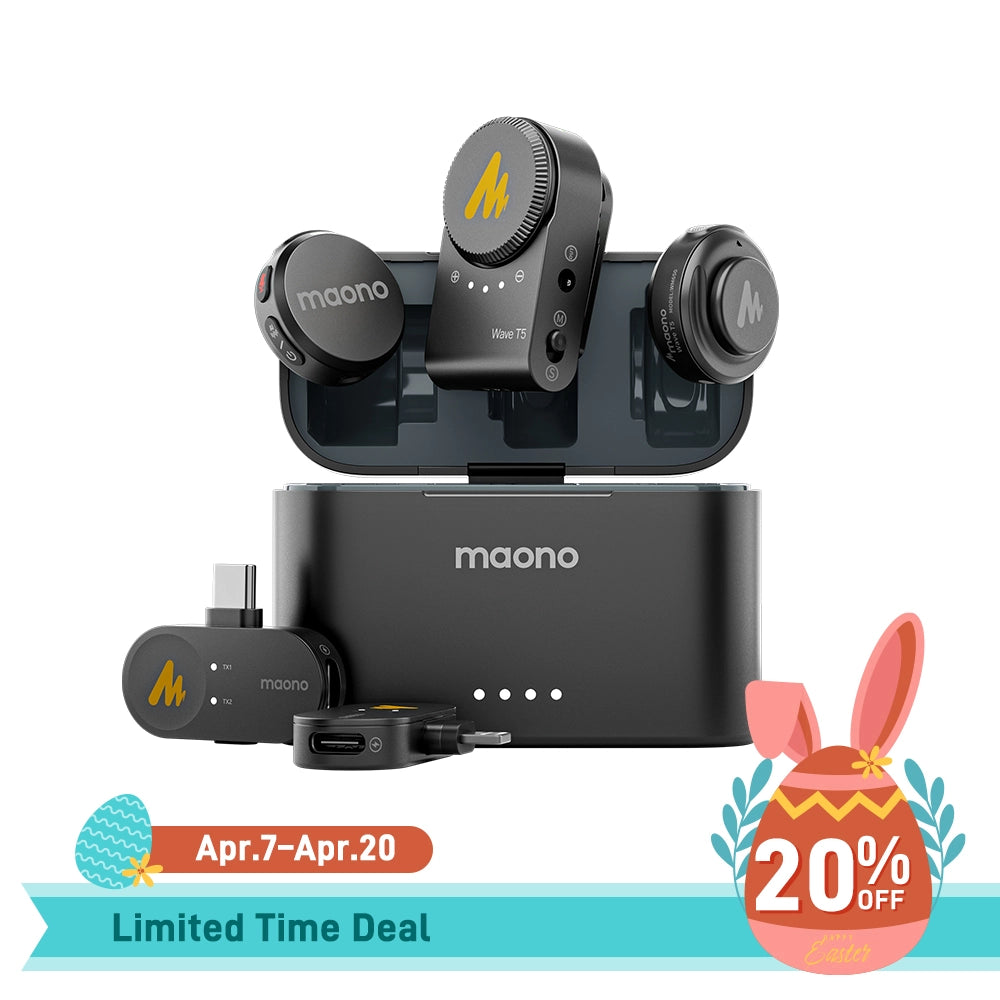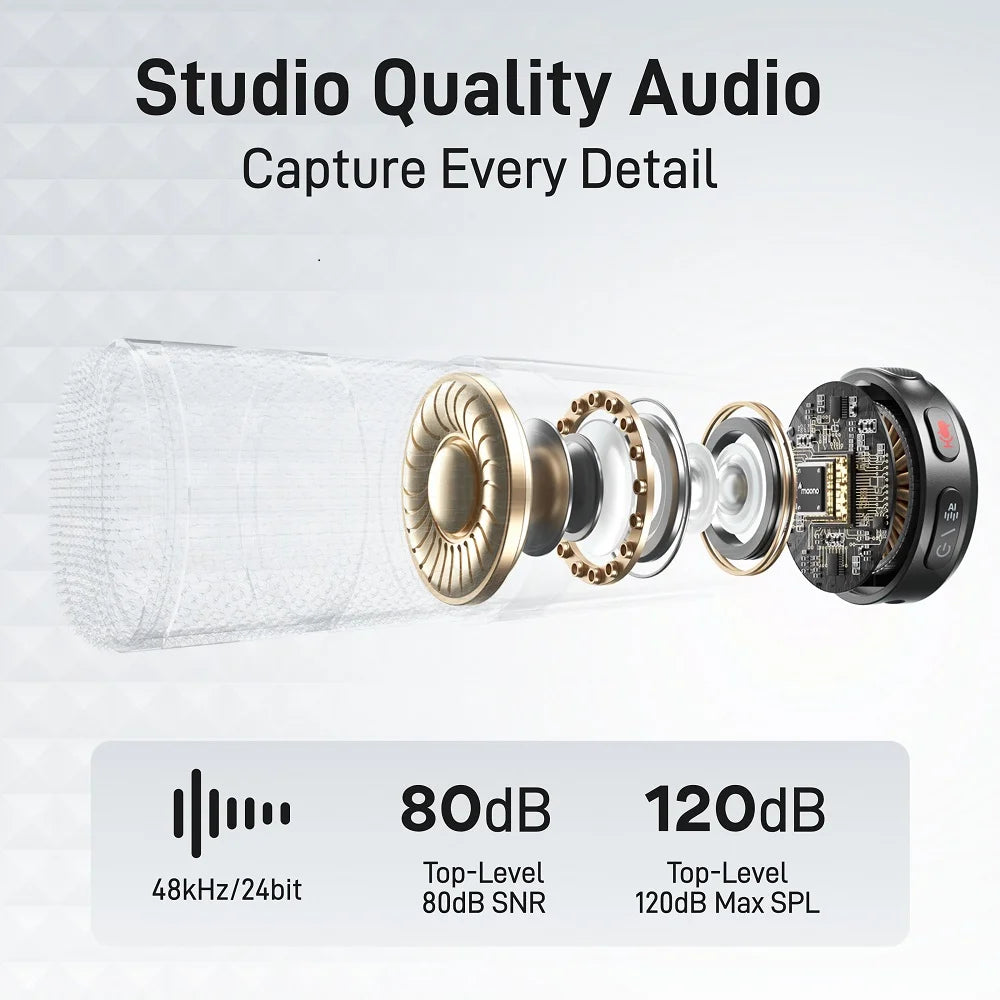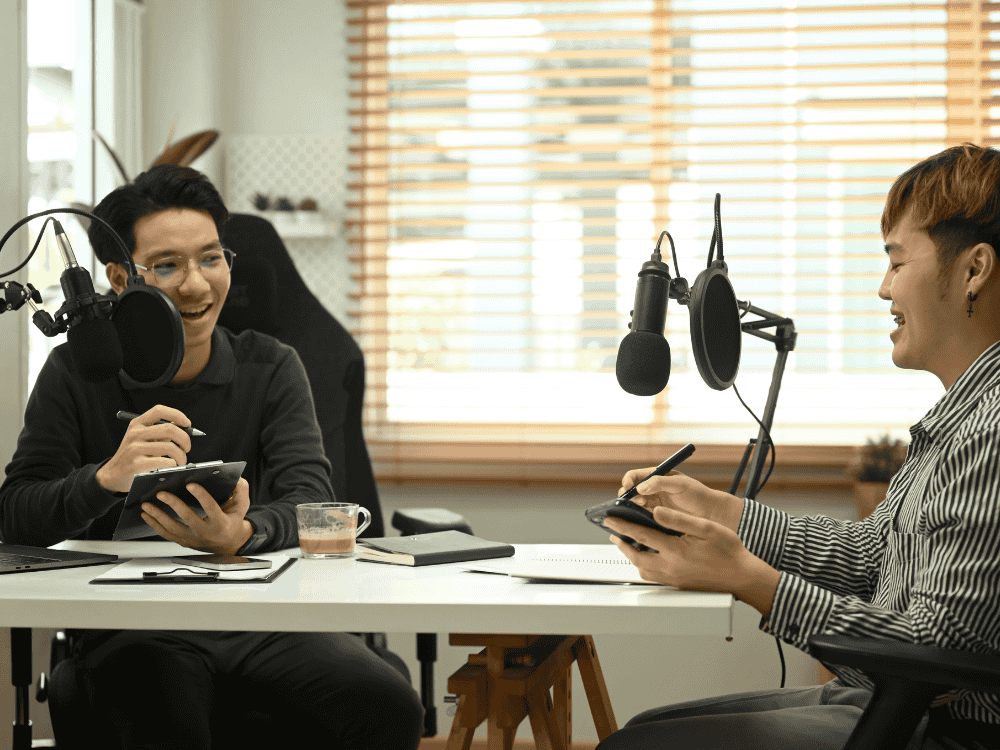In the age of digital communication and content creation, having a high-quality microphone is essential. USB-C microphones represent a significant advancement in audio recording technology, offering improved compatibility, ease of use, and superior audio quality. As USB-C continues to become the standard for digital devices, investing in a USB-C microphone ensures that you are equipped with a versatile and future-proof tool for all your recording needs. Whether you're a content creator, musician, or professional, a USB-C microphone can greatly enhance your audio production capabilities.
In this article we will guide you through the top USB-C microphones for various needs, providing detailed descriptions and answering frequently asked questions.
What is a USB-C Microphone?
A USB C microphone is an audio recording device that connects to a computer, smartphone, or other digital device via a USB-C port. USB-C, or USB Type-C, is a universal connector standard that offers several advantages over older USB connectors, such as USB-A and Micro USB. USB-C connectors are small, reversible, and capable of high-speed data transfer and power delivery.
Importance of USB-C Microphones
1. Compatibility and Future-Proofing
USB-C is becoming the standard port for modern devices, including laptops, tablets, and smartphones. Using a USB-C or a USB Type C microphone ensures compatibility with the latest hardware and future devices, making it a more future-proof investment.
2. Ease of Use
USB-C microphones are typically plug-and-play, meaning they can be easily connected and used without the need for additional drivers or software. This simplicity is particularly beneficial for users who want to start recording quickly without technical hassles.
3. Improved Audio Quality
USB-C microphones often come with built-in audio processing capabilities, such as analog-to-digital converters (ADCs) and preamps, which can enhance audio quality. This makes them suitable for professional applications, including podcasting, streaming, and recording music.
4. Power Delivery
USB-C ports can deliver more power compared to older USB standards, which allows USB-C microphones to operate more efficiently and with better performance. This is especially important for microphones that have built-in features like LED lights or digital signal processing (DSP).
5. Versatility
USB-C connectors can transmit data at high speeds and support other protocols, such as DisplayPort and Thunderbolt. This versatility means a single USB-C port can be used for multiple purposes, reducing the need for multiple types of ports and cables.
6. Compact and Reversible Design
The USB-C connector is smaller and reversible, making it easier to connect without worrying about the orientation. This design is particularly useful for portable devices like laptops and smartphones, where space is limited.
7. High-Speed Data Transfer
USB-C supports high-speed data transfer rates, which is crucial for high-resolution audio recordings. This ensures that the audio data is transferred quickly and without loss of quality, resulting in clearer and more accurate recordings.
Best USB Type C Microphones: Our Picks
1. HyperX QuadCast S: Best for Streaming
The HyperX QuadCast S stands out with its vibrant RGB lighting and excellent audio performance. It's designed specifically for streamers, offering four polar patterns and an anti-vibration shock mount. The touch-sensitive mute button and built-in pop filter enhance its usability, making it a top choice for professional streamers.
Notable Features:
- Four polar patterns
- RGB lighting
- Anti-vibration shock mount
Pros:
- Excellent sound quality
- Customizable lighting
- Streamer-friendly features
Cons:
- Higher price
- Complex setup for beginners
2. Audio-Technica AT2040USB: Best Standalone
The Audio-Technica AT2040USB brings studio-quality sound to your home setup without the need for an audio interface. Its cardioid polar pattern ensures focused audio capture, while the USB-C connection provides convenience. This microphone is perfect for podcasters and home studio enthusiasts looking for professional sound quality.
Notable Features:
- Cardioid polar pattern
- USB-C connectivity
- Studio-quality sound
Pros:
- High-quality audio
- Easy to use
- No need for an audio interface
Cons:
- Limited to cardioid pattern
- Higher price for a USB mic
3. Tula USB-C Microphone: Best for Travel
The Tula USB-C Microphone is designed with portability in mind. Its compact size and built-in battery make it ideal for on-the-go recording. Despite its small stature, it delivers impressive sound quality, making it perfect for travel vloggers and journalists.
Notable Features:
- Compact design
- Built-in battery
- USB-C connectivity
Pros:
- Highly portable
- Good audio quality
- Convenient for travel
Cons:
- Limited features
- Short battery life
4. Shure MV88+ Video Kit: Best Shotgun Microphone
The Shure MV88+ Video Kit includes a high-quality shotgun microphone and a tripod, making it perfect for smartphone videography. The microphone's directional polar pattern captures clear audio from the subject while minimizing background noise, ideal for mobile content creators.
Notable Features:
- Directional polar pattern
- Includes tripod and accessories
- USB-C compatibility
Pros:
- Excellent for mobile recording
- Clear and focused audio
- Versatile kit
Cons:
- Higher price
- Bulkier setup for a smartphone
5. Røde Wireless Go II: Best in Versatility
The Røde Wireless Go II is a wireless microphone system that offers exceptional versatility for interviews and vlogging. Its compact size and wireless functionality make it easy to use in various settings. The USB-C connectivity ensures compatibility with modern devices.
Notable Features:
- Wireless system
- Compact design
- USB-C connectivity
Pros:
- Versatile and portable
- Good sound quality
- Easy to set up
Cons:
- Expensive
- Requires battery management
6. AKG Lyra: Best Retro Look but Modern Functionality
The AKG Lyra combines vintage design with modern performance. Its retro look is complemented by high-quality audio capabilities, making it a stylish and functional addition to any recording setup. The USB-C connectivity ensures ease of use with contemporary devices.
Notable Features:
- Vintage design
- High-quality audio
- USB-C connectivity
Pros:
- Stylish design
- Good sound quality
- Easy to use
Cons:
- Design may not appeal to everyone
- Limited features compared to modern designs
7. SteelSeries Alias: Best in Aesthetics
The SteelSeries Alias stands out with its built-in RGB lighting, adding a dynamic visual element to your recording setup. It offers excellent audio quality and a range of polar patterns, making it a versatile choice for various recording needs.
Notable Features:
- RGB lighting
- Multiple polar patterns
- USB-C connectivity
Pros:
- Customizable lighting
- Versatile use
- Good audio quality
Cons:
- Higher price
- Complex setup for beginners
8. Maono PD100U Dynamic USB Microphone
9. Maono HD300T
What is a Lavalier Microphone?
A lavalier microphone is characterized by its small size and clip-on design, typically used for hands-free operation in situations like interviews, presentations, and video recording.
Can a Lavalier microphone be a USB-C microphone?
Yes, a Lavalier microphone can be a USB-C microphone. A USB-C lavalier microphone is a small, clip-on microphone that connects to devices via a USB-C port. These microphones are designed to provide hands-free audio recording while being directly compatible with modern devices that have USB-C ports, such as newer smartphones, tablets, and laptops. A USB-C Lavalier microphone specifically uses a USB-C connector. It combines the hands-free, clip-on design of a Lavalier microphone with the modern connectivity of a USB-C interface.
What are the benefits of using a USB-C Lavalier Microphones?
- Ease of Use: USB-C lavalier microphones are typically plug-and-play, requiring no additional adapters or complex setup. You simply plug the microphone into the USB-C port of your device, and it's ready to use.
- Portability: Lavalier microphones are compact and lightweight, making them easy to carry and ideal for on-the-go recording. This is particularly useful for vlogging, interviews, presentations, and other scenarios where mobility is important.
- Compatibility: With USB-C becoming the standard port for many devices, a USB-C lavalier microphone ensures compatibility with a wide range of current and future devices.
- Audio Quality: USB-C lavalier microphones can offer high-quality audio recording, suitable for professional use in interviews, video production, and broadcasting.
- Power and Data Transfer: The USB-C connection provides sufficient power and supports efficient data transfer, ensuring stable and reliable audio recording.
What are some examples of USB-C Lavalier Microphones?
- Rode Lavalier GO with USB-C Adapter: The Rode Lavalier GO is a popular choice that can be used with a USB-C adapter for direct connection to USB-C devices.
- Saramonic LavMicro U1A: This lavalier microphone comes with a USB-C connector and is designed specifically for use with USB-C smartphones, tablets, and computers.
- Shure MVL with USB-C Adapter: The Shure MVL is another high-quality Lavalier microphone that can be connected to USB-C devices using an appropriate adapter.
- WM21 from Maono: WM821 is a wireless Lavalier microphone system that includes a transmitter and a receiver with USB-C connectivity, making it suitable for modern devices such as smartphones, tablets, and laptops with USB-C ports. It’s designed for interviews, video recordings, live streaming, and public speaking. The wireless system offers convenience and flexibility, allowing users to move freely without being tethered by cables.

More FAQs
1. What Are Microphone Polar Patterns and Gain?
Microphone polar patterns refer to the directionality of the microphone's sensitivity. Common patterns include cardioid (front-focused), bidirectional (front and back), omnidirectional (all directions), and shotgun (narrow focus). Gain refers to the amplification of the microphone's signal, adjusting the volume of the input audio.
2. How do you Use a Lavalier Microphone?
Step 1: Attach the lav microphone to a recording gadget.
Step 2: Install the lav microphone on the subject
Step 3: Ensure the cables are clutter-free and synchronize the camera and audio.
How to hide a lavalier microphone:
- Use clothing clips or tape to discreetly secure the mic.
- Conceal the mic under clothing but ensure it's not muffled.
3. Is it possible to connect a USB-C Wireless Lavalier Microphone to a USB Hub on Android?
Yes, it is possible to connect a USB-C wireless Lavalier microphone to a USB hub on an Android device, but there are a few considerations:
- Compatibility: Ensure that both the USB hub and the microphone are compatible with your Android device. Not all USB hubs support audio devices, so check the specifications.
- OTG Support: Your Android device must support USB On-The-Go (OTG) functionality, which allows it to recognize and interact with external peripherals like microphones.
- Power Supply: Some USB hubs might require external power to function correctly with audio devices. Ensure your hub has the necessary power supply.
4. Why USB-C Microphone Doesn't Work on My Phone?
If your USB-C microphone doesn't work on your phone, there could be several reasons:
- Incompatibility: Not all phones support USB audio devices. Check if your phone is compatible with USB-C microphones.
- Software Issues: Ensure your phone's operating system is up to date. Sometimes, software updates include support for new peripherals.
- Settings: Check your phone’s audio input settings. You might need to select the USB-C microphone as the default audio input device.
- OTG Support: Ensure your phone supports USB OTG, which is necessary for connecting external devices.
- Power Supply: Some microphones require more power than your phone can provide. In such cases, an externally powered USB hub might be necessary.
5. How Do You Connect an Android with a Single USB-C to Both an Ethernet Adapter and USB at the Same Time?
To connect an Android device with a single USB-C port to both an Ethernet adapter and a USB peripheral simultaneously, you can use a USB-C hub with multiple ports. Here’s how:
- Choose a Multi-Port USB-C Hub: Select a hub that has both an Ethernet port and additional USB ports.
- Connect the Hub to Your Phone: Plug the hub into your Android device’s USB-C port.
- Connect the Ethernet Adapter: Plug the Ethernet adapter into the Ethernet port on the hub.
- Connect USB Devices: Plug your USB peripherals (like a microphone or storage device) into the available USB ports on the hub.
- Ensure OTG Support: Make sure your Android device supports USB OTG to recognize the connected devices.
Conclusion
Picking the right USB-C microphone can boost your audio quality, whether you’re streaming, recording music, podcasting, or doing interviews. There are versatile models like the Blue Yeti and HyperX QuadCast S, as well as specialized ones like the Shure MV88+ and Røde Wireless Go II, so there’s something for every need and budget. Maono microphones, such as the PD100U, HD300T, and WM82, offer excellent options for both wireless and wired setups for less than the price but with superb quality. Knowing the basics and ensuring your microphone works with your devices will help you get the best results. With the right microphone, you can get professional-quality audio anywhere.


